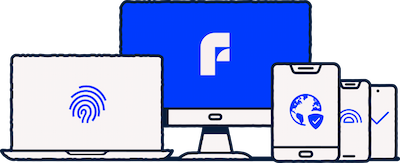A computer virus is a piece of malicious code or a program that is designed to spread within a computer and from one device to another. One defining characteristic of a computer virus is that it needs a host to attach itself to. This could be a harmless-looking attachment file in an email or an executable program. Once the infected file is opened the virus gets into action and begins to spread. Until this the computer virus lays dormant, waiting to be activated by the user. Because it needs a host to attach itself to, these types of malware are called viruses, just like viruses that can infect humans and animals.
Signs of a computer virus
A user does not necessarily notice the presence of a computer virus on their device. However, there are some common signs of a computer virus infection that can help take action towards getting rid of them.
The device slows down. Poor performance and slow start-up times are signs that your computer has been infected with a virus. The slowness of your computer could also be due to other programs running in the background that require a lot of processing power. It could also be your device getting old and outdated.
Frequent crashing and freezing. All computers can crash from time to time. It could also be a virus, in case the crashes are particularly common. The device can also freeze, requiring a reboot to get working again.
Unexpected pop-up windows. If you start getting odd pop-up notifications and ads, your computer could be infected. Sometimes the pop-ups caused by a computer virus can be disguised as ads or notifications for antivirus software and virus scans for your device. In reality, you are being scammed to install other malware or give away your personal information and money.
Missing or infected files. As a computer virus spreads it corrupts or removes files on your device. In the worst-case scenario, you cannot get the virus-infected files back. This is why having backups on a separate hard drive is a good idea.
Changes to your web browser. If you notice something strange going on in your browser, such as a different home page and new toolbars, there can be a virus on your computer.
Unknown apps and programs. Computer viruses may bring them with odd apps that appear on your desktop and installed programs. At times they may even start up without the user opening them.
Your email account is sending out messages. The virus could cause your email account to send out spam and phishing emails to other people in large quantities. Remember that this works both ways and you may receive an email from someone else that has been sent because of a computer virus infection.
How to avoid and remove computer viruses?
Online criminals know how to trick you into downloading a virus on your computer. Luckily you can do a lot to prevent that from happening. As computer viruses need a host program or a file to spread and do harm, an easy way to avoid getting a virus is by stopping suspicious files from getting on your computer.
Phishing emails can be used to spread computer viruses or direct the user to a website that downloads a virus-infected file on their device. So make sure to think before you click when browsing online. Especially pirated files and software can be a threat to your cyber security as they often contain viruses and other malware.
You should also keep your operating system and other applications up to date. Outdated software may hide vulnerabilities that can be exploited by online criminals. And speaking of software, you definitely should have a reliable antivirus program keeping your devices protected at all times. An antivirus software can catch viruses that lurk in the attachment files of phishing emails or files you might download online. This makes it one of the most important parts of your online protection. If you are suspicious of a file on your computer, you can scan it for viruses and other malware with the antivirus.
If you have caught a computer virus despite your best efforts, try running a virus scan on your computer. A regular virus scan on your device should be a part of everyone’s cyber security routine. F‑Secure has a free online scanner on our website for your Windows PC. With your computer’s antivirus software you can detect and contain files and programs that have been infected by a computer virus. You should remove or uninstall these from spreading any further.
What is the difference between malware and virus?
Although the words malware and virus are often used interchangeably and have many things in common, they are not entirely the same thing.
Malware is an umbrella term used to refer to all malicious software without taking into account how it operates or spreads in systems and from one device to another.
A computer virus is a type of malware that is defined by its way of spreading by copying itself.
In other words, all computer viruses are malware but not all malware are viruses. Types of malware other than computer viruses include trojans, computer worms and ransomware. For example, a computer worm can self-replicate on its own in order to spread, whereas viruses need a host to help them spread.
Are mobile devices safe from viruses?
Nowadays all internet-connected devices are susceptible to viruses and other malware. Even home appliances, such as washing machines, your router, webcam, and other so-called IoT devices (short for Internet of Things) can get infected. So it is safe to assume that your mobile devices are not safe either. Although smartphones and tablets are not under the same kind of threat as desktop computers and laptops, there is malware looking to infect your mobile devices.
One recent example of mobile malware are so-called Android banking trojans. They are capable of mimicking real banking mobile apps and can trick the user into giving away security codes used for two-factor authentication. Other mobile malware can spy on the device’s owner by listening to phone calls, recording the device’s screen or using location data to track the victim in real life.
Many of the same tell-tale signs of computer viruses apply to mobile viruses. One of the most notable and noticeable changes in your device, however, is battery drain. Using a mobile phone naturally uses up its battery. If you notice the battery draining unusually fast, make sure to check the device for malware. Luckily there is reliable virus protection for both desktop computers and mobile devices, such as F‑Secure Total.


)
)

